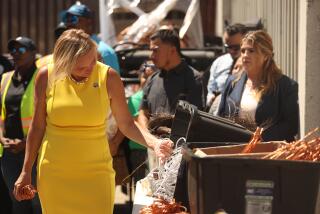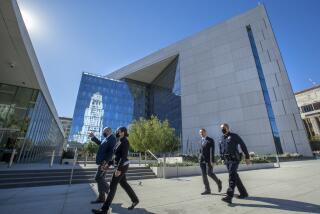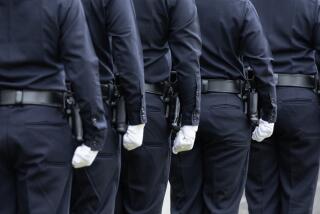Study Sought on New Burglar Alarm Policy
- Share via
Saying further review is necessary before the city implements a new “two-strikes” alarm-dispatch policy, three City Council members introduced a motion Friday asking for an assessment of the fiscal, technological and legal impact of the plan.
“This policy raised more questions than it answered,” said Councilman Jack Weiss, who sponsored the motion with members Cindy Miscikowski and Antonio Villaraigosa. “And no public funds should be spent implementing this policy until we have that answered.”
The motion directs city officials to report back to two council committees on the cost of modifying the city’s emergency dispatch system to instantaneously determine if there had been previous false alarms at a particular address.
It also directs the city attorney to review any potential liability to the city with a new system, and whether the city can create a program to fine alarm companies for chronic false alarms.
As approved Tuesday, the policy would allow property owners two false alarms a year. The city would impose a $95 fine for the first false alarm, with the fine growing by $50 for each subsequent false alarm. The Los Angeles Police Department responded to 123,587 burglar alarms last year, according to the Police Commission, which enforces the alarm ordinance. Of those, 106,640 were false.
Mayor James K. Hahn said the plan, which reversed an earlier decision to stop responding to all unverified burglar alarms, predicted that police responses to false alarms would be reduced by about 55%. He said the new policy struck a balance between freeing police resources and assuaging public concerns about the response to actual crimes.
But Police Chief William J. Bratton said 95 officers would do nothing but respond to false alarms, taking them away from priority calls.
He also said the policy gives the security alarm industry no incentive to improve the way it operates.
More to Read
Sign up for Essential California
The most important California stories and recommendations in your inbox every morning.
You may occasionally receive promotional content from the Los Angeles Times.










